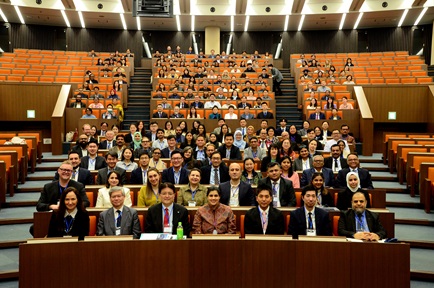Is cash really king?
My research argues and subsequently demonstrates that cash is not almighty and not always king such that cash may sometimes backfire (compared to less tangible money in the form of cards) and hinder financial welfare.
Disciplines as varied as psychology, economics, marketing, and finance aim to help people make better financial decisions. To this end, prior research on the psychological "pain of paying" proved useful for many consumers by showing that even when price tags are held constant, paying in cash is more painful than paying with less tangible forms like credit cards, which in turn helps consumers spend less. This has resulted in the now-popular "cash diet".
Diverging from prior work, my research argues and subsequently demonstrates that cash is not almighty and not always king such that cash may sometimes backfire (compared to less tangible money in the form of cards) and hinder financial welfare. In the three studies I conducted with my co-researcher considering tradeoffs between smaller-sooner and larger-later rewards, we found that paying people in cash fosters greater impatience making people more likely to forego lucrative financial rewards.
For instance, one of the studies demonstrated that whereas only 49 per cent of its survey participants compensated in cash decided to wait for a larger-later reward ($7 a week later compared to $5 immediately), 78 per cent of respondents compensated via card opted to wait for a larger-later reward. For perspective, delaying money-collection by one week in exchange of a $2 surplus (over a $5 principal) corresponds to an interest rate over 2,000 per cent per year.
Our explanation for this key finding is as follows. Letting go of money people can have now to reap financial rewards later (accrued interest) is more painful psychologically when the money to be given up is cash than when it is via card. In turn, this higher psychological pain causes increased impatience (that is, a preference for smaller-sooner rewards).
The studies also suggest that increasing concerns for safety, responsibility, and security may help protect against the negative effect of cash on impatience. In other words, when concerns for safety, responsibility, and security are up, people show similar patience, whether they get paid in cash or via their cards. We thus stress a personality trait with great potential to improve people's financial welfare.
Overall, while prior research shows that cash is consumers' friend in spending and shopping situations, we highlight that it paradoxically turns against consumers in saving/investment decisions by reducing their willingness to wait for later, more lucrative rewards. In this context, cash breeds impatience. Our research based on the "pain of parting from money" offers a logical way to explain not only why cash helps when spending, but also why cash may hurt investment and saving. This insight is novel in that it refines the wisdom widely derived from the "pain of paying" paradigm (that cash helps "save" money).
Why is this relevant? Despite the widespread use of cashless payment tools, the use of cash in daily life remains more common than one might think. Contributing to the practice is the very means by which people are paid. In the US, 10 to 20 per cent of workers (especially cooks, waiters, cleaners, sitters, tutors, maintenance/repair crews) collect part, if not all, of their wages in cash. In India, only 8 per cent of the population use accounts at financial institutions to receive wages. In Singapore, one third of work permit holders receive their salaries in cash, according to the Ministry of Manpower.
UNBANKED AND UNDERBANKED
Globally, 1.8 billion workers (about 50 per cent of the labour force) are paid in cash, according to the OECD. Given the sheer magnitude of people navigating life and making financial decisions primarily (if not exclusively) in cash, our results suggest that much of the world's workers may be at a chronic disadvantage and vulnerable when it comes to personal saving and investment. The current findings thus bear importance for the unbanked and underbanked in both advanced economies like Singapore and much of the developing world.
The present findings are also potentially relevant in the context of undersaving. Lack of savings is a rampant issue with dramatic consequences. For illustration, 36 per cent of young Singaporeans have no savings at all (according to EnjoyCompare.com, a Singapore financial portal). While providing for retirement is a priority for 76 per cent of the young Singaporeans polled, only 49 per cent have a financial plan according to a study by DBS. Beyond young people, of the surveyed Singaporeans aged 55 and above, 27 per cent had not started saving for retirement according to Aviva's survey in 2015. And this problem is bound to increase in future years since greater life-expectancy will retard end of life in which healthcare needs and costs skyrocket. From societal and policy-making standpoints, then, understanding the factors that increase or decrease consumer saving such as the ones examined in my research is essential.
Last but not least, our findings offer potential insights for better financial planning and the psychology of payment, saving, and debt. These include: alerting people to the fact that operating on a cash basis may hinder saving tendencies; raising people's concerns for safety, responsibility, and security; reducing the pain of parting from money (for instance by giving financial incentives).
The writer is an assistant professor of marketing at Nanyang Business School, NTU Singapore. His research on the subject was done jointly with Rod Duclos of Western University. Their research is published in the Journal of Consumer Psychology at https://onlinelibrary.wiley.com/doi/10.1002/jcpy.1098
Also published in The New Paper.







